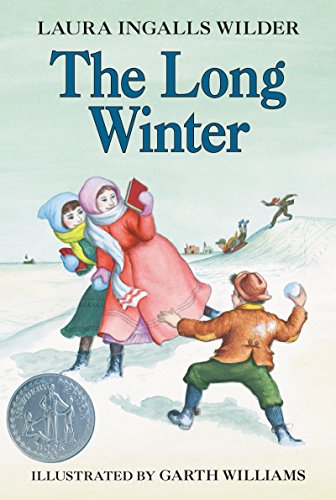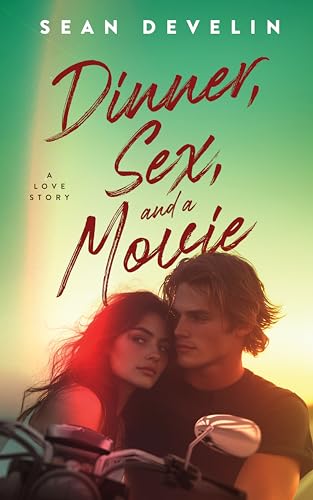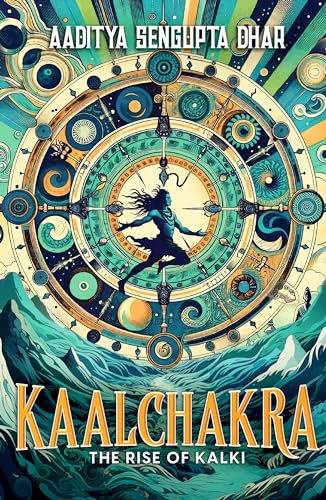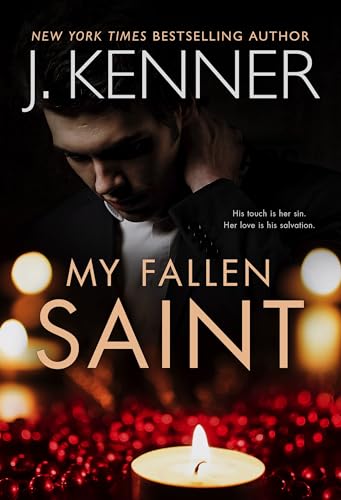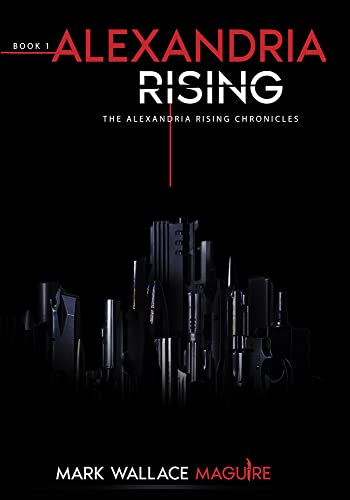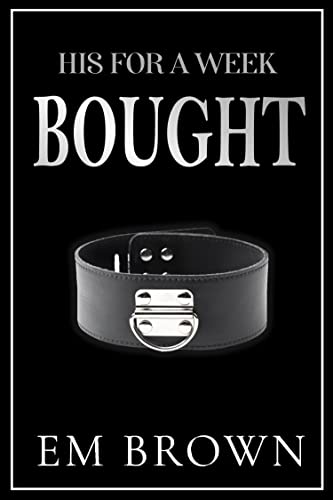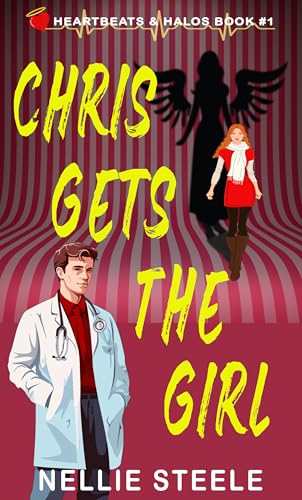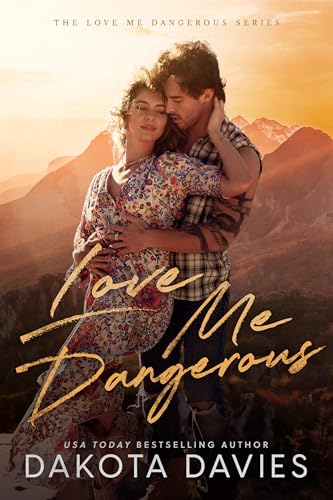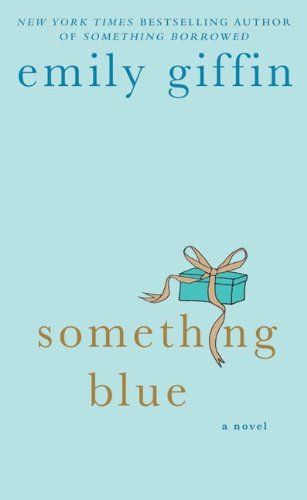15 straight rave reviews!
“Brilliant…well written with complex characters… “
An elite hacker, a beautiful CIA agent and an ambitious gangster circle each other in a dangerous, terrifyingly high-stakes game of international intrigue…
Don’t miss this gripping technothriller while it’s 33% off the regular price!
4.6 stars – 15 Reviews
Text-to-Speech and Lending: Enabled
Here’s the set-up:
An ambitious Singapore gangster recruits an elite hacker to steal a devastatingly powerful quantum computer and hijack the world’s financial markets. Meanwhile, a beautiful streetwise CIA agent is determined to foil their plan in a case that could make or break her career.
With settings ranging from Detroit to Singapore to the slums of Bihar, India (the “Sicily of India”), Qubit examines both the vulnerability of our cryptographic infrastructure and corruptibility of our financial systems. The story features international intrigue, a violent gang war, an unlikely love story, and an intricate cryptographic chess match that takes place as the global economy teeters on the brink of collapse.
5- star praise for Qubit:
“Great suspenseful read! Cool subject matter, compelling characters, and gripping story!”
“Outstanding!…characters…are wonderfully fleshed out.”
an excerpt from
Qubit
by Finn Mack
Copyright © 2014 by Finn Mack and published here with his permission
Part 1
Drinks Are On Me
1
Renaissance Center (Detroit Riverfront)
Wednesday, January 17th
2:00 p.m. EST (Eastern Standard Time)
Lock hunched his shoulders and dug his hands into his pockets, a futile defense against the whip-cold wind rushing angrily towards Jefferson Avenue from the icebound Detroit River. Dark and soaring cylinders of glass and steel loomed over him like implacable gods. Their very name — collectively,The Renaissance Center — was a promise of a future that had never come, a fitting monument to a city that had lost its way.
Perhaps parking in the garage farthest from his destination was thus a fitting, if entirely accidental, ritual. After all, weren’t he and the city self-similar parts of a mysterious socioeconomic fractal? Anyway, it was a costly mistake when it was twenty degrees below freezing. At last, he approached the 200 Tower, eyeing the revolving glass doors longingly. Beyond those doors lay warmth.
And a job interview.
Lock clenched his jaw at the familiar sensation of rusted gears grinding up his intestines. Why did he bother with these things? Before he even finished the thought, he knew the answer. The email inquiry had gotten his attention with those two magic words: quantum cryptography.
Lock found himself coming up behind a small, round figure that appeared to be wearing at least two heavy coats and three scarves, one of which secured a woolen cap, and another of which might have been a tattered blanket. A few curly white locks of hair had tumbled out from the top of this bundle, which Lock belatedly realized was an old woman. He forced himself to slow down to match her gait, reaching forward to help her push the door forward. The old woman turned back to him slowly with something that looked at first like a sneer, but after a moment, Lock realized she was trying to smile. Her face was moist with tears, perhaps from the cold. Lock nodded at her and forced himself to smile back — it was probably more of a grimace — barely restraining himself from pushing her forward towards the warmth.
With the old woman shuffling steadily forward in the wedge in front of him, Lock pushed against the door, hearing the frustrated gasp of the wind as the door sealed behind him. He paused for a moment to savor the relief — and to let the old woman get clear of the door.
What was he still doing in cold, wintry Detroit? Why not move somewhere warmer? Somewhere he could find a decent job? Of course, he knew the answer to that question, too.
Sophie was here.
Lock made his way to an open elevator and got on, unbuttoning his coat, being careful as always with the third button, which dangled from the jacket by a single worn thread. And, as he always did, he reminded himself to take the coat to the cleaners to fix the button. He felt the gears grinding again as the floor number displayed above the door measured his ascent.
Ten. Fifteen. Twenty.
He’d never used his real name in connection with his interest in quantum cryptography, which meant someone had gone to no small amount of trouble to find him. It wasn’t just a matter of tracing his IP address because he anonymized all his Internet activity using a program called Tor, for which he’d proudly submitted several patches.
He walked down a poorly lit hallway with dingy blue carpet before arriving in front of glass doors, upon which were etched the words “Patel and Associates,” and through which he recognized what appeared to be a reception area. Lock took a deep breath and pushed open the door.
In stark contrast to the hallway outside, the office itself was surprisingly well-appointed, featuring burnished wood floors, a perky ficus tree that nearly reached the twelve-foot ceiling, and a thick Persian-style carpet that made Lock want to take his shoes and socks off. The air smelled vaguely of…incense? Whoever these people were, they weren’t recruiters.
He introduced himself to a caramel-skinned receptionist with a mole on her cheek and silky black hair that was pulled back tightly into a bun. She forced her mouth into a semblance of a smile and told him to have a seat. Lock guessed that he’d interrupted a riveting Facebook session.
He settled his lanky frame into a comfortable brown suede couch and picked up a copy of that morning’s Wall Street Journal. He took in the headlines with morose-orbed blue eyes and attempted to run his fingers through what would have been stringy blond hair, before remembering that he’d shaved his head. Kafka had convinced him it would look sexy. He ought to have known it was a prank. It was Kafka’s way of encouraging him to get over his breakup with Mandy. As he pretended to read an article (“Buggy Trading Systems Put Markets At Risk,” warned the headline), he wondered if he ought to have worn something besides a sweatshirt and jeans. At least they were freshly laundered. And he’d worn his new bright-blue Converse hi-tops.
Lock caught himself tapping his foot. There really was only one reason why anyone would be interested in an ex-con with a penchant for quantum cryptography. Especially in the wake of the announcement of the Wave Nine. Well, if the Feds were going to pin something on him, he might as well deal with it. Maybe he could be like DJB or Aaron Swartz and take the government head on —
“Mr. Cairnes, Mr. Patel will see you now,” chimed the secretary.
Lock looked up from his paper with an affected arching of his eyebrows. He folded the paper back up, set it down, and stood, discretely wiping his palms on his jeans. He walked to the office door, which was closed, and looked over to the secretary — was he supposed to simply open the door, or knock? She nodded wordlessly. Lock opened the door and walked in.
“Ah, Mr. Cairnes,” said a man in a shiny gray silk suit, standing up behind a large desk made of a dark, heavy-looking wood. The muscles of his round face were relaxed. He blinked slowly and smiled with a faint air of condescension, as though he were amused by a child playing. He gestured toward an even larger black leather couch across the room. “Please, make yourself comfortable.”
Lock took in his surroundings, which were entirely consistent with the lobby, and included the addition of two wall-sized pieces of art and a spectacular view of Detroit’s west side and the snow-muted expanse of its frozen river. If he had an office like this, maybe Sophie would look up to him more, like she did Dennis, her stepfather. This office was even nicer than the one Dennis had in Bloomfield Hills.
“You can call me Lock,” he offered, easing himself into the couch. “What is it you guys do again?”
“We’ll get to that, I’m sure,” replied Kirin, strolling over to the couch. His heels clicked on the wood floor until he reached the border of a thick intricately patterned carpet. Lock noticed that his shoes were immaculately polished. He looked down at his new blue Converse, which suddenly seemed tacky. Kirin reached out and offered his hand. “Kirin Patel.”
Lock looked up and took his hand, shaking it awkwardly. Shaking hands was one of those strange customs, like wearing ties, that seemed to be from another time and place. He did his best, certain that his gawky handshake was unimpressive.
However, Kirin seemed unconcerned as he sat down in an expansive chair, his jacket parting to reveal a slight paunch, his hands placed casually, palms down, on the wide, flat armrests. Lock decided he needed a chair like that for his living room. His vibrating recliner suddenly struck him as…juvenile.
“Mr. Cairnes — Lock — I’d like to offer you a job,” began Kirin. He reached down to adjust his bright-blue pocket square, as though he’d suddenly noticed that it was out of place. As he looked up, Lock thought Kirin looked like a man who felt as if he’d gotten away with something. “It pays quite well,” continued Kirin, “and I think you’ll find the work very interesting.” He paused and leaned forward slightly. “How does that sound?”
“A job?” Lock heard himself echo dully. He looked out the far window at the cold blue sky, darkened by the window’s tint, and rubbed his hands together slowly. Perhaps this really was just a job interview. However, Kirin had skipped past the usual pointless questions and gone right to offering him the job. And there was still the question of how they’d known about his interest in quantum cryptography. “Sounds good, I guess,” Lock mumbled.
Kirin leaned back, looking surprised. “Don’t you want to know what kind of job it is?”
“Sure,” said Lock, his eyes wandering to the paintings on the wall. The one on the left was white with what looked to him like a brightly colored whirlpool viewed from above — various shades of reds and blues, with a smattering of yellows. Lock decided he liked it and wondered how much it had cost.
“I’d like you to build me a quantum computer,” said Kirin, an expectant smile on his face.
Lock laughed, partly because of the sheer absurdity of the statement and partly out of nervousness. What the hell was this guy up to? “A quantum computer?” he parroted, his eyes coming back to Kirin’s, his eyebrows raised.
“Yes,” said Kirin, looking mildly offended. Lock realized he must have sounded dismissive. Kirin elaborated. “What if I told you that we had licensed the technology from Coherence Technologies?”
Lock stopped laughing. Kirin didn’t look or act like he knew Shor’s algorithm from a brute-force dictionary attack. And no one actually called them Coherence Technologies. They were CoTech, or maybe Coherence. “For the Wave Nine? The NSA locked that up.” Hadn’t they? One rumor on the message boards was that the Wave Nine would be released once the Internet’s cryptography infrastructure had been upgraded to use algorithms that weren’t vulnerable to quantum computing-based attacks. Another rumor held that the NSA already had a quantum computer, and simply didn’t want anyone infringing on their monopoly.
Kirin ignored his objection. “What I’d like to do is hire you to build a quantum computer based on the specifications from Coherence Technologies.”
Lock’s eyes narrowed. “I can think of several folks in Ann Arbor alone who are probably better qualified than I am for something like that.”
Kirin waved his hand. “Nonsense, Lock. We need someone with, shall we say, practical hands-on experience, as much as we someone who understands the physics. Just like the Chief Scientist at Coherence Technologies. There really aren’t that many people like him. Or like you. At least not who would be interested in this job, mind you. The private sector isn’t for everyone. And, again, we’re happy to pay you a generous salary.”
Lock sat back and took a deep breath, his eyes wandering again to the view of the river outside. Maybe this was for real. Maybe he was so accustomed to failure at this point he couldn’t even trust an opportunity when it was handed to him. He took another breath and tried to focus on the pieces that didn’t yet fit. “You seem to know an awful lot about me.”
“Of course!” Kirin clapped his hands together as if something had been agreed on, showing his teeth with a Cheshire-cat smile.
Lock stared down at the glass-topped coffee table, which had one of those interactive magnet sculptures, presently featuring the outline of someone’s hand. Lock guessed it was the receptionist’s. He pursed his lips. The heel of his foot began moving up and down, seemingly of its own accord. He stopped breathing. “I get it,” he intoned, looking up slowly. “You haven’t actually licensed their technology.”
Kirin’s smiled slipped away for a moment, but then he began to laugh and rub his hands together. “Yes, you’re very clever. Not surprising, I suppose. That’s rather the point, isn’t it? Anyway, right. We haven’t actually licensed the technology. So we also need you to…ah, how shall I put this?”
“You need me to steal it,” interrupted Lock, his eyes closed.
“Yes, that’s it,” said Kirin, emphasizing the point with a ringed finger.
Lock slapped his hands on his thighs, preparing to get up. “Well, I’m sorry, Mr. Kirin — ”
“Kirin, just Kirin is fine. My last name is — ”
“ — but I’m afraid I can’t help you.”
“We haven’t even talked about the money — ”
“It’s not the money. I just can’t help you.” Lock stood up.
Kirin quickly rose too, moving a step toward Lock. “Don’t you want to build a quantum computer? Wouldn’t you find that exciting?”
Lock raised his hands as if to defend himself from Kirin’s advance. “Sure. It’d be interesting. But…well, I’m going to go.” He began walking toward the door.
“How about a salary of a…a million dollars annually?” asked Kirin.
Lock was halfway across the room. He turned. Even Kirin seemed surprised by the offer. He was apparently desperate — although Lock now understood why. He was being offered everything he’d wanted — but he couldn’t take it. He couldn’t risk going back to jail again. He couldn’t risk losing whatever was left of Sophie’s childhood. And, hell, it was probably a sting by the FBI or something anyway. “The answer is no. Got it?” He turned back toward the door and walked out of the room.
Donning his jacket in the elevator, he exhaled, his weight lifting slightly off his feet as he descended. He glared up at the descending floor numbers displayed above the door. “God dammit,” he cursed, slapping the burnished aluminum elevator wall, and wondering why he’d bothered coming at all.
Sentosa Cove, Singapore • The Li Home
Thursday, January 18th
9:00 a.m. SGT (Singapore Time)
Vipul Rathod felt a bit giddy as he shifted the black Acura SUV into park. Traveling without his usual entourage was liberating. And especially so since he’d just pulled into the ample driveway of one of his family’s chief rivals. If there was ever a place he was supposed to have his bodyguard, this was it.
He got out and walked along a curving sidewalk toward Li Mun’s sprawling estate. The morning sun seemed to make everything shinier, and there was a nice breeze blowing in off the ocean. It seemed like an awfully nice day to be contemplating murder.
He reached the porch and noticed a child’s scooter lying on its side. Did the old fattie have grandchildren? He pressed a button next to the large double doors and heard chimes playing a pleasant, familiar-sounding tune. He stepped back and waited, crossing his arms and looking askance at the neighboring lot. It was just as impressive as Li Mun’s. Perhaps I should get one of these places for myself, he thought.
The door opened just wide enough for a tall, severe-looking man to glare at him. “You’re Vipul Rathod?” he said with a heavy Chinese accent. Fresh off the boat.
“Yes,” replied Vipul.
The door opened a little wider. Vipul stepped into a large tiled foyer. “Raise your arms,” said the first man. He raised them and felt two sets of hands patting him down. They found nothing, just as he knew they wouldn’t, because he carried no weapons. He didn’t need them.
“Right this way,” said the stockier man, leading him into a large living room that was almost completely white, with white marble floors and patches of white rugs, as well as a white suede couch that formed a cushioned perimeter around the room. Light streamed in from two large sliding doors, offering a view of the ocean, which glimmered like a vast display-case of diamonds. He made his way into the room slowly, taking in the various details. A telescope. A large painting of a black circle on a — what else? — white canvas. A glass table with obsidian carvings of…something.
“Please make yourself comfortable,” said a woman’s voice behind him. Vipul turned. The stocky man was gone. The woman before him was so beautiful his knees nearly buckled. Waves of black hair cascaded down to her elegant neck. She had high cheekbones, almond-shaped eyes with golden irises, and lips that made him think of fresh raspberries. “My father will be with you shortly,” she said, and Vipul became light-headed. She was still talking. “Can I offer you a drink? Some coffee? Orange juice? Or mineral water, perhaps?”
“No,” Vipul managed to croak, his tongue sticking momentarily to the roof of his mouth. “Thank you.” He tried to smile, but realized that it hadn’t quite come off. It never did. He wasn’t much for smiling. Or women, for that matter. But this one…he wondered if she thought he was too small, too boyish looking. Or maybe she went for that. Women often told him he was —
“Very well, then. Like I said, my father will be in momentarily.” She turned and walked down a hall that led out of the vast living room. Vipul’s head tilted as he watched her hips sway with each step. She disappeared around a corner, and Vipul was two steps into the hallway himself before realizing he’d started following her. That was Li Mun’s daughter? To hell with my brother, he thought. I should be proposing a dynastic marriage. Maybe his brother had the same idea. Maybe that’s why he’d never mentioned the daughter. There was already enough bad blood between them as it was, without throwing Helen of Troy into the mix.
The thought of his real reason for coming focused him. He turned back toward the living room and sat down in a corner section of the expansive couch, then leaned back and mentally rehearsed the imminent encounter. A few moments later, he heard a shuffling sound. He turned and saw the old man entering the room; he was impressively rotund, with dark pockets of flesh beneath heavily lidded eyes, and sported a disastrous comb-over. Hard to believe, thought Vipul, he’s one of the most powerful men in Singapore.
Vipul stood up. Li Mun waved his hand as though to say Vipul needn’t have bothered. He shuffled over to a large lounge chair directly opposite Vipul and fell slowly backward into it. He stared at Vipul, raising his eyebrows and frowning slightly. Vipul said nothing.
They stared at each other.
“What the fuck are you doing here?” asked Li Mun finally.
Vipul attempted a smile again, but this time the icy overtones were intentional. “Nice to see you too, Li Mun.”
Li Mun glared, motionless.
Vipul found himself looking down at his brown loafers. He wasn’t accustomed to being stared down. Usually, he was the one doing the staring. He forced his eyes up to meet Li Mun’s gaze. “I’ll get to the point,” he said, his voice sounding too wispy. This is it, he told himself. Get it together. “We have a dispute, correct?” He paused, but Li Mun simply kept staring at him. “But I think we can both agree that my brother is a stubborn man.” His tone was sounding better now, a bit lower. “We can probably also agree that stubbornness is not a trait of a good leader.” Ah, that’s too low. Don’t want to sound like you’re trying too hard. “Resolving disputes like ours requires a willingness to come — ”
“I’m not going to kill your fucking brother for you.”
Vipul could feel his heartbeat accelerate. Li Mun had skipped ahead of the script. How would his father have responded? Of course, that was an absurd question. His father was dead. And even if he’d been alive, old Bikram would have surely grabbed Vipul by the earlobe and — focus. “Ah,” was all he managed to say.
“Anything else?”
If nothing else, the old man had taught him not to give up. And Oxford and Harvard had taught him persuasiveness. In theory, anyway. “I understand. You’re concerned about the cost.”
“The cost? It’s the heat. Are you a child? In this town? I gotta lay up for months for something like that.”
“Which…costs you…money,” prompted Vipul, trying to conceal his impatience.
“Exactly,” said Li Mun.
Vipul watched the old man. He had barely moved since he’d sat down. Even his lips barely moved. He reminded Vipul of his old Zen master, Yuan. Except that Yuan wasn’t vain enough to bother with a comb-over and wasn’t obese. “But…if I were running things, you and I…I think we’d get along much better.”
“You’ll concede the points if I kill your brother. No. It’s not worth it.”
Vipul suddenly realized Li was bargaining with him. For a moment, he wanted to play just to see if he could win against such a formidable opponent. But then he remembered why he was really here. The points meant nothing to him. Let the cranky old bastard think he’d outwitted Bikram’s overeducated younger son. That actually made things easier. Vipul knew that the dispute between his brother and Li Mun was a complicated affair that came down to how they divvied up the profits from selling whores, mostly from India and China. Li Mun wanted a larger share of the Rathod organization’s profits because he provided most of the political protection. “Three points, then.”
Li Mun blinked slowly and shook his head.
For God’s sake, man, Vipul wanted to yell. He took a deep breath. It’s just a game. And none of this matters anyway. “Four,” replied Vipul. I have to at least make it look like I’m trying.
“Five.”
“Four is plenty. With all due respect.”
“With all due respect, go fuck yourself. We both know you’re a dead man without me. You’re lucky I don’t ask for points on your whole fucking business.”
Vipul sat back. A crooked smile played across his face. Li Mun probably understood his situation better than he did. He was a master. When this is all over, he thought, I’m going to marry your daughter and then study everything you do. “What’s your daughter’s name?” he asked, surprising himself.
“What? What do you care?”
“She’s very beautiful.”
“Yeah.”
“Five?”
“Give me five on the rest, and I’ll throw in my daughter.”
Vipul tried to laugh. He wasn’t good at it. He always risked sounding like a bleating sheep. He’d need to work on that. The important thing was that Li’s joke meant they had a deal. It was an awful deal by any ordinary standards. He’d have a hard time selling it to Anand. But they had a deal, nonetheless. Now he just needed to —
“How do you know your brother wasn’t here first?”
Vipul had begun standing up and so was caught half-sitting and half-standing. He hesitated for a moment and decided to stand. Further discussion just created unnecessary risk that the deal might go sideways. “I don’t,” he replied crisply and began walking toward Li Mun to shake on their deal.
Of course, if Satish had already proposed a deal, either Vipul had just made a better one, or he’d be dead momentarily. He was suddenly glad he hadn’t played hardball — and certain that he was going to walk out of Li’s home alive.
Because there was no way his stubborn brother would have agreed to five points.
Jurong East, Singapore • Katya’s Apartment
Thursday, January 18th
9:30 a.m. SGT (Singapore Time)
Katya Brittain absentmindedly stirred her coffee with a spoon, even though she hadn’t put any sugar or cream in it yet. Her compact figure was curled up in the corner of an undersized yet abundantly cushioned sofa that she had selected specifically so that she could curl up in it each morning. Her Medusean black hair was pulled tightly back into a pony-tail, specifically so that she could feel the air-conditioning caress her neck. She stared into the screen of her laptop with dark and curious eyes, while balancing the laptop itself expertly across one of her thighs. She held her World’s Greatest Daughter coffee mug with one hand and stirred nothing into the coffee with the other. The mug had been specifically chosen to remind her of home, since, by necessity, almost nothing else in her modest apartment could.
A grainy black-and-white video was playing on her laptop. She watched as a man approached the entrace to a large resort home. She set the coffee mug down on the end table next to her, which itself had been carefully selected specifically so that it would serve as an extension to the sofa and allow her to set her coffee mugs on it without needing to pay too much attention to what she was doing. Several mugs’ worth of coffee had been spilled over the years because of tables that were either too high or too low, and Katya had been determined to bring an end to that particular tragedy.
She dragged her finger across the trackpad, effectively rewinding the video, and then hit the spacebar on the keyboard to allow her to advance, frame by frame. Once in a while, she would stop and fire off an exotic sequence of keystrokes and mouse gestures that resulted in sending the captured frames to her printer, which was on the other side of the room next to a dying fern, a plant she’d selected specifically because it wasn’t supposed to die.
She hopped up from the easy chair and slid across the floor in her stockinged feet, skidding in front of the printer in a practiced move. She picked up the photos and studied them for a moment. She found their subject to be boyishly handsome. Maybe he’s dating the daughter, she conjectured. She walked over to a bare desk in front of a window, a plastic-and-metal affair that hadn’t been selected specifically for any reason at all because Katya rarely used it, except to set things on it, which is what she did with the photos. She stared out the window, which gave her a view of the rooftops of a number of other apartment buildings and then, peeking out from behind them some distance away, the lush green of the parks surrounding Jurong Lake. Beyond that, she mused, where the wharfs and the Singapore Straight, and then, of course, Malaysia and the Indian Ocean. She looked back at the grainy photo that lay on top of the others, at a young man squinting in the sunlight, his shoulders slightly hunched. He looked vaguely haunted. Probably just another cad chasing after Li Mun’s daughter. Still, she’d ask Ong Goh about him, just in case.
2
Corktown, Detroit • Mad Dog’s Tavern
Thursday, January 18th
11:00 p.m. EST (Eastern Standard Time)
“A million dollars?” asked Kafka incredulously, shocks of black hair emerging at unexpected angles from the top of his oblong head.
“I could have probably gotten two,” replied Lock, finishing a sip of beer. He looked across the bar at the old photo of “Mad Dog” Sullivan, an angry-looking Irish gangster who was the bar’s namesake. Lock loved the antique feel of the place — the bar had originally been a speakeasy back when Detroit was the principal port of entry for liquor coming in from Canada. With the red brick walls and the gaslights glowing in their frosted sconces, it was as though the bar was part of some hidden, timeless alley.
“Two million? Are you kidding me?” Kafka stared straight at Lock through his thick-framed glasses. They’d fallen out of fashion a few years earlier, but Kafka hadn’t cared. He’d been wearing the same glasses since before they were in fashion to begin with.
Lock gave him a sidelong glance and couldn’t suppress a wry smile. “Yeah, he threw out a million when he realized I was walking out. Hell, maybe I could get him up to three. Or five.”
“Lock, you guys need another round?” asked Vicky from farther down the bar, a towel thrown over her shoulder. She wore her dark-brown hair back, and Lock admired the creative ways she found to accentuate an already prominent bosom. Tonight her strategy involved a black T-shirt, torn open at the neckline to form a ragged V-neck, with the words “Ask me if I care” emblazoned across the front in white gothic script.
“Sure, Vicky, but when are they going to get some real Irish girls in here?” asked Lock.
Vicky gave him an exaggerated frown but said nothing, grabbing two glasses from beneath the bar and filling them from a tap.
“So are you going to take it?” asked Kafka.
Lock leaned sideways and sneered. “Really? You have to ask me that?”
Kafka shrugged, as if protesting his innocence. “I don’t know, man. You just get in and get out. Also, fuck man…building a quantum computer? You’d do that for free.”
Lock shook his head vigorously. “I just can’t risk it.”
“I get that, when we were talking a few Ben Franklin’s to change someone’s grades. But…this is the real deal, man. This is…how’d they get your name, anyway?”
“Here are you are, gentlemen,” offered Vicky, setting the two full pint glasses in front of them.
“Vicky, does my friend Lock here look like a criminal to you?” asked Kafka.
“Nah. He just looks tragic.”
“Tragic?” asked Lock, straightening his posture. “I look tragic?”
“Yeah, you got those tragic eyes.” Vicky gave him a sly smile before wheeling and heading back down to the other end of the bar.
Lock shook his head slightly and took a swig from his beer, marveling at the myriad tip-maximizing tactics that Vicky had mastered.
“So how’d they get your name?” Kafka pressed.
“Don’t know. That’s a good question.”
“Message boards, maybe?”
“Maybe. The thing is…”
“Yeah?”
“You’re right. I would do it for free. Imagine having your own quantum computer. That’d be something. I’d love to try Grover’s algorithm on something besides a simulator. You know, for real. Actually see what kind of crazy things I can do with it.”
“What’s the big deal with quantum computers again? I mean, I know that they have qubits instead of bits, but I always sort of forget the details…”
Lock gazed at the back of the bar as though a movie were projected on it. “Well, the easiest way to get it, is to think about simulating quantum mechanical interactions. We can model them with wave functions, but, on a transistor-based computer, running those models is relatively slow because we’re translating wave functions into a bunch of logic operations.”
“Ones and zeroes…”
“Right. On a quantum computer, however, we aren’t using transistors, we’re using the state of a quantum particle directly. For example, the spin — ”
“Is that Black Irish playing? I think that’s Black Irish.”
“ — of an electron or the polarity of a photon. Yes, that’s Black Irish.”
“I thought so.” Kafka returned his attention to Lock, with mock seriousness. “Continue, please, professor.”
“You asked the damn question. Anyway, naturally, our simulation runs much faster, because, in a sense, it’s not really a simulation anymore. We’re actually changing the state of quantum particles.”
“Like if we wanted to model the effect of weed on the brain, the best way to do it would be to actually smoke some weed.”
Lock smiled in spite of himself and sipped from his pint glass. “Sure. I guess. The thing is, lots of things are based on wave functions, not just quantum particles. To use your analogy of the brain, we know humans are really good at pattern recognition. Like I can recognize you or Vicky. I’d probably recognize you even if you grew a mustache and put on a hat.”
“Or if you were really stoned.”
“Also, yes. But…where was I? Oh, yeah. Pattern recognition is useful for other things, too, like diagnoising medical conditions. So it’d be real useful if we could hook up transistor-based computers to brain-based computers to do pattern recognition. But we can’t because we don’t know how to build brains.”
“Which is too damn bad.”
“But we do know how to build quantum computers. Thanks to CoTech. It was hard problem because quantum particles are really small, obviously, and really unstable.”
“This is all coming back to me now. Each qubit can have more information than a bit on transistor-based computers. Because it’s a wave form? So lots of qubits allows for really complex wave forms.”
“Exactly. It’s like an MP3 file. It’s just a big, complex wave form. But there’s enough information there for us to hear Black Irish.”
“And then you can use a different set of algorithms, like Fourier transforms.”
“Right, because they operate directly on wave functions. Those algorithms run blindingly fast on a quantum computer because the computer’s state already is a wave form, not a bunch of switches that are pretending to be a wave form.”
“Ah, that’s right. And we know how to use Fourier transforms to do things like integer factorization, which normally take exponential time — “
“Well, not exponential, but…almost, yeah.”
Kafka frowned disapprovingly. “As I was saying. Finding prime factors takes a long time on transistor-based computers. But on a quantum computer, since we can use Fourier transforms, we can use a different algorithm, and it runs much faster.”
“In polynomial time. For really large numbers this is a big difference. Seconds, instead of years. Most of the cool things you can do with quantum computers are based on that idea: algorithms that use wave functions, which we have to simulate with bits and bytes, run much faster on qubits, because qubits are wave forms already.”
“I remember you running those simulations. What was that language?”
“QCL. Yeah. I was always trying to show you some cool new algorithm.”
“Yeah,” said Kafka. “But I just wanted to play Super Mario.”
Lock laughed and looked down into his beer. “Yeah, and that fucking game where you had to rescue Zelda and never did.”
Kafka chuckled. “Yeah. That game was awesome. Dodongo dislikes smoke!”
Lock shook his head. “We thought we had it all figured it out.”
“Hey, we had a good time.”
“Easy for you to say.”
“Right. Sorry. I just meant — ”
Lock waved his hand without looking up. “Forget it. The thing is…”
“What?”
Lock took a long draught from his pint glass. “Stealing it. That’s a different story. And I’m not even sure I could build it, even if I had the plans. I mean, you need diamond crystals, finely calibrated magnetic fields — ”
“But that’s the whole idea of stealing the specs. All that stuff would be in there.”
“Yeah. Maybe. But if there’s one detail left out…”
“So…you’re thinking about it?”
“No, man. I mean, of course I’m thinking about it. You know, like I think about maybe one day I’m gonna sleep with Vicky. But not really. I told you. Too risky.”
“Two million dollars is a lotta cheddar, though.”
“Hell, for all I know, it’s an FBI sting or something.”
“A sting? Wouldn’t that be entrapment?”
Lock looked up and found himself amused by Kafka’s earnestness. “You don’t think they’d just lie about it? I’d rather not be the martyr.”
Kafka lifted his glass. “I hear that.”
Lock sank into the aural ambience of laughter and hushed voices and another indie band that he couldn’t quite place playing on the jukebox.
“Hey,” said Kafka. Lock felt a wiry hand on his shoulder. “Isn’t it your fucking birthday?”
Lock shrugged.
“So what are we doing to celebrate?” demanded Kafka.
“Not much,” answered Lock. “I’m opening tomorrow.”
“Aw. Why didn’t you ask for the time off?”
“Need the hours. Every time I do that, Rich cuts my damn hours.”
“Come on, man.” Kafka sat up and looked around the bar. “We need to at least get you laid.”
Lock frowned. “You make it sound like that only happens once a year.”
“Well, since Mandy dumped your ass…”
“I dumped her,” insisted Lock.
Kafka raised his hands in the air. “Okay, okay. I just remember you sitting on my couch — ”
“Oh, like you’ve never had a weak moment.”
Vicky seemed to appear from nowhere. “Hey, what about Sophie?” she asked.
“What about her?” asked Lock.
“Are you guys doing anything?”
Lock puzzled over Vicky’s apparent ability to participate in a dozen conversations at once. Yet another tip-maximizing skill. “Yeah. I’m taking her and Krista snowboarding.”
“That’s so sweet.”
Lock nodded and took another sip from his beer. “If I’m lucky, she’ll come over afterwards and we can rent a movie and order a pizza. She used to love that. But now…”
“She’s sixteen, Lock,” counseled Vicky. “That’s all. She’s just outgrown it.”
“She’s outgrown me.”
“Nah,” said Vicky. Lock looked up just as she winked at him and scampered away again.
“Two million dollars,” mused Kafka, cocking an eyebrow. “You could buy Sophie her own slope.”
Lock regarded his friend warily from the corner of his eyes. “You’re such an asshole.”
“Or maybe I just work for the FBI.”
Pioneer Wharf, Singapore
Saturday, January 20th
4:30 a.m. SGT (Singapore Time)
Katya put down the field glasses and wiped her brow. Her black Lycra tights felt constricting in the night’s thick, damp heat. She leaned back against a large shipping container, concealed in its shadow. After counting ten deep breaths, she peered cautiously from around the corner, raising her field glasses to her eyes.
Li Mun was speaking to a dozen men in black suits who stood around him in a semicircle. Behind them were four black Mercedes SUVs. Katya found Li Mun’s presence here puzzling. The day before, she’d noticed a spike in the chatter from Li Mun’s lieutenants. They never said much, and what they did say was nearly impossible to make sense of, even after months of listening in. But in her years in the field, she’d learned to infer a great deal through context. How many calls had been made? How far apart were they? Did the speakers sound tense? She knew something was happening tonight, even if she didn’t know what.
She’d picked up Li Mun’s cavalcade after they had crossed the bridge leaving the Li Estate on Sentosa Island. The use of a private wharf like this one would normally have suggested to Katya they were smuggling in young women. But there was no reason for Li Mun to concern himself with such a routine event.
Two more black Mercedes SUVs pulled up, and more men in black suits began spilling out of them. There was a strange tension in their movements, but Katya couldn’t quite identify what it was. Abruptly, she recognized the man who got out of the rearmost vehicle: Satish Rathod. Now it all started to make sense. The Rathods were a relatively small-time crime family, not nearly as influential as the Li Triad, and certainly not Triad. But they were players, nonetheless. Probably here to negotiate some sordid business arrangement.
The two men shook hands, encircled by what amounted to a platoon’s worth of nervous soldiers. In their midst, the two principals chatted easily, like old friends. Katya hadn’t bothered setting up mikes or cameras — the place was too wide open. She was probably too close as it was.
She leaned back against the shipping container and took another deep breath. This was something of a letdown. She’d been hoping for a breakthrough — perhaps a meeting with the trade minister, or at least the deputy minister. She considered just packing up and leaving. But then she thought of Ong Goh. Another trick that nearly a decade in the field had taught her — information was currency. Maybe she’d learn something that would be useful to the SPF. After all, they needed a warrant to do surveillance here. Whatever was happening, she was the only way they’d ever know about it. And although the CIA was on friendly terms with the SPF, and she was on good terms with her contact, Ong Goh, it never hurt to come bearing gifts.
She squatted down to fish around in a black canvas bag she’d brought with her. She pulled out a small black camera and then slowly peered around the corner again. She heard the rumble of a boat and then saw its outline as it approached the dock. The running lights were off. She heard voices calling out — they were guiding the vessel in. Everyone was now facing the shore, which meant there wasn’t much point in taking pictures because there were no faces. Still, she held the camera in position. They’d turn around eventually. She’d snap a few pictures proving the meeting between Li Mun and Satish Rathod had taken place, and then she’d split.
It was girls after all. The catcalls started even before she could see them. Perhaps they were a gift to cement some business deal? The first of them appeared at the front of the barge, alighting unsteadily on the dock with the help of several of the gangsters. Then a second and a third. Satish and his men were acting as though they’d never seen women before. Li Mun’s crew had actually withdrawn slightly. Curiously, they weren’t looking at the girls —
Gunfire flashed and cracked and the women screamed and nine men were thrown backward, falling to the ground. Katya’s arms fell to her sides before she remembered the camera. She brought it back up, focused, and held the button down. She took a round of photos and put the camera down again, watching with naked eyes. Li Mun’s men advanced, divvying up the slain and carefully firing one round into each of their skulls.
Kill shots. Take no chances.
And leave no traces. Weapons dangled from shoulder straps or disappeared into holsters. Keys were taken from pockets. Bodies were picked up and thrown aboard the barge that had brought the girls, who in turn were loaded into the newly orphaned SUVs. The motor of the barge fired up, grumbled a bit, and the ship drifted back into the darkness. The SUVs efficiently formed a parade of tail lights leading back out to the main highway.
Within ten minutes of the first shots, the wharf was empty.
Katya slid down behind her container and realized she wasn’t breathing. Calm down, she told herself. It was just another gangland execution. Li Mun had, for some reason, decided he’d had enough of Satish Rathod. No big deal, not her concern. But still, her hands were shaking. Even though she had some military training, spook fieldwork was mostly surveillance and relationships. She’d never witnessed anything this violent firsthand.
She looked at the camera and began flipping through the photos she’d taken, partly out of curiosity and partly just to calm herself. Neither Li Mun nor Satish Rathod’s faces were identifiable in a single photo. Satish, of course, had been on the ground by the time she’d starting taking pictures. Li Mun had quietly lumbered into the back of one of the SUVs, never once turning toward the camera. She wondered if perhaps he’d known she was there. She looked around nervously, but there was nothing but looming shipping containers and shadows upon shadows. She placed the camera back in the bag, hoisted it over her shoulder, and hurriedly disappeared into the darkness.
Tally Bar, Singapore
Saturday, January 20th
10:30 p.m. SGT (Singapore Time)
Katya worked her way through the crowd at the legendary Tally Bar and climbed up the spiral staircase to find Ong Goh at his usual table in the far corner. She sat down across from him and smiled. He always managed to look at her like she was the only woman on earth. She admired the Clark Gable mustache and the confident look in his eye and the impeccable way he dressed, with a cravat and neatly turned-out collar, his silver hair always slicked back — and his whiskey glass never empty. Ong Goh was truly a man from a bygone era.
“Hello, my darling,” he growled, his voice somehow cutting through the sound of the drum solo fromSing, Sing, Sing. “Will you marry me?”
“You’re already married.” Ordinarily, Katya would have merely tolerated the harassment, taking the high road in the name of some larger goal. She believed she had pretty thick skin. But coming from Ong Goh, it was somehow, if not charming, at least inoffensive.
“I’ll get divorced.”
“Ask me again when it comes through.”
“I will.”
A waiter appeared. Ong Goh ordered for her: “Whiskey sour for my beautiful companion.”
“Just a soda water with lime,” corrected Katya.
Ong Goh frowned. “How can I take advantage of you if you’re always sober.”
Katya smiled patronizingly. “I have some interesting news.”
“There are no words you can speak that would not be interesting, my darling Katya.”
“Right. Last night — well, I guess it was early this morning — Li Mun’s thugs shot and killed Satish Rathod and…eight of his men.”
“Not seven or nine?”
“No. Eight.”
“My, my. Where?”
“There’s a private wharf they use, west of the airport. They use it mostly for girls. But this time there was some kind of meet. Apparently, it didn’t go well.”
“Satish dead. And the little brother isn’t even in the business.”
“The little brother?”
“Vipul. Their father sent him off to Oxford. Sort of the runt of the family.”
“Hmm. So he’s like Michael Corleone.”
“A Godfather reference? Sure. Except his father’s already dead.”
“That brings me to another question.” Katya delved into her purse and pulled out the photos she’d printed from the video capture outside Li Mun’s home. “Is this Vipul, perhaps?”
Ong Goh put down his whiskey and examined the photos. Katya’s soda water arrived, and she took a sip. “Could be,” said Ong Goh. “I’d have to run it by someone to be sure. Can I keep these?”
“Sure. I have some others from the wharf last night, but they don’t show much except a bunch of guys in suits lying on the ground.”
“I can see that in the alley beside the hotel any night of the week.”
Katya smiled.
Ong Goh leaned back and took a long draught of whiskey. He stared at Katya. “In all seriousness, why won’t you run away with me?”
“What do you make of all this? Why is — what’s the brother’s name again?”
“Vipul. Don’t you know, I’m very unhappily married.”
“No, you’re not. Do you think Vipul made some kind of deal with Li Mun? Was it a power play? Did he arrange to have his brother killed?”
Ong Goh leaned forward and took Katya’s hand. “You mustn’t overthink these things, my love. The criminal mind is rarely complicated. Anyway, who cares? The Triad is our real concern.”
Katya withdrew her hand. “I know. I just thought it might be useful intel.”
“I’ll pass it on. Thank you. Do you have anything else?”
“Not this time. You?”
“Not much. As expected, our minister is planning to support the quota proposal.”
“That’s good.”
“That’s terrible.”
“Except that I have his cell conversations with Li Mun. So it proves Li Mun is influencing him.”
“It proves nothing. We have nothing to go after him with and nothing to show Triad influence. You know I can’t use your surveillance.”
“Not directly, no. You know better than I, this is how it always starts. A piece here and a piece there.”
“If it means dragging this case out so I can spend my evenings with you, I’m all for it.”
Katya smiled wearily. “Not quite what I meant.”
Chinese Garden, Singapore
Sunday, January 21st
5:30 a.m. SGT (Singapore Time)
Had anyone been surveilling Katya, they would have known that every morning she went for a long walk, all the way down to the Chinese Garden and then back. And every morning she’d meet with what they might guess was a retired gentleman who had a fondness for Panama hats, guayabera shirts, and perhaps attractive young women of ambiguous ethnicity. They would meet a little after sunrise on weekdays — perhaps thirty-minutes later on weekends — on a bridge near the twin pagodas overlooking Jurong Lake and have a chat. They were creatures of habit, it seemed, as they rarely missed a day. Perhaps they’d become friends, in time, meeting each morning like that. Maybe it was just knowing that the other was going to be there, looking forward to saying hello and hearing the latest news.
Or maybe…
ψ
This particular morning, as on most mornings, Haruo Quartan arrived before Katya. He leaned over the railing, appearing to stare out at the calm surface of the lake.
Katya walked to the apex of the bridge, taking her place next to him, and assuming the same posture. “Good morning, Haruo,” she said.
“Good morning, Katya. I hear Mr. Li has been a bad boy.”
“I saw it myself.”
Haruo paused. “What tipped you off?”
“Chatter.”
“Cell phones?”
“Yes.”
“They never learn.”
Katya smiled to herself. “I’d like to think perhaps it has something to do with listening patiently for nearly two years. Not to mention Hong Kong.”
“There’s that,” acknowledged Haruo.
Katya smiled again. “Thank you.”
“What’s he about?”
“Li Mun? I think it’s actually a coup happening in another family. Li Mun was just the trigger man.”
“Which family?”
Katya straightened up, leaving just a hand on the railing, and turned toward Haruo, who was still looking out over the lake. “Fairly small-time. The Rathods?”
Haruo made a slight humming sound.
Katya wondered if that meant he’d heard of them. “The younger brother, Vipul, got rid of the older one, Satish,” she added helpfully.
“For Li Mun to intervene…”
Katya was eager to show Haruo that she had explored all the implications. “Vipul must have conceded something.”
“A great deal, I would imagine. This is Singapore, after all.”
Katya was silent. Haruo apparently wasn’t impressed by her analysis. This is Singapore. Murder was rare in the island city-state. Of course, that was partly because it was so easy to get rid of the bodies. The murder of Satish and his men would very likely never show up in the official statistics.
“The younger brother is up to something. Li must realize it too.”
Katya took a different angle. Haruo was always telling her to stay focused. She wanted to make sure he knew that she had. “Given our mission here…”
“You’re probably right.”
They were silent for a few moments. Sometimes, there just weren’t any new developments worth talking about. Katya prepared to say good-bye.
But apparently it was okay for Haruo to get distracted. “What do we know about the younger brother?”
“Not much. Ong Goh is going to send me the SPF profile. Western education. Oxford. Was not directly involved in the family business.”
“You see the problem?”
Katya did not. What had she missed? She waited for Haruo to continue.
“In medieval Europe, the nobility sent the younger sons into the clergy. Today, gangsters send their younger sons to Oxford and Harvard.”
Katya desperately wanted to see the connection.
Haruo’s mind continued down whatever rabbit hole it had fallen into. “The father, then, he’s passed on?”
“Yes,” confirmed Katya, recalling Ong Goh’s observation from the night before, and wondering what had inspired Haruo’s guess.
Haruo made a low humming sound. “Let’s set up on Vipul.”
“I don’t understand.” Katya stared intently at Haruo as if she might be able to see into his mind and learn the secrets of how it worked.
“There’s nothing to understand, Katya. That’s exactly the problem.”
She turned back toward the lake and stared at a family of turtles swimming past, feeling stupid.
“Katya. You’re looking for connections. Sometimes you have to look for disconnections.” Quartan paused. “I’m not talking about the whole works. Just the basics. A radio scanner. A few cameras. Just to have it. Just in case.”
“Okay.”
“Anything else?”
“Ong Goh proposed to me again.”
“I wish you both the best.”
Katya laughed in spite of her frustration. “I didn’t accept!”
“Ah. Well, you should. He’s a fine old cadger.”
“He’s married!”
“To a fine woman, in fact. Until tomorrow?”
“Good-bye, Haruo.”
“Good-bye, Katya.”
3
Little India, Singapore
Sunday, January 21st
9:00 a.m. SGT (Singapore Time)
Vipul wiped a bead of sweat from his brow as he scanned the faces of the family’s lieutenants, seven of whom had recently been promoted. The chairs at the tables were all occupied, and there were still another dozen men standing. They were all packed into the back room of Desi, a restaurant whose real purpose was to launder money and give them a place to meet discretely. It was hot and dank, and the smell of sweat and curry made Vipul’s eyes water.
Anand’s imposing figure loomed over his own, even though Vipul was standing as tall as he could. He never stopped being impressed by Anand’s stature. Everything about him was oversized: his bald head, his broad shoulders, his ring-clad, claw-like hands. His eyes always seemed to be narrowed and his jaw clenched. “Everybody’s here,” he whispered to Vipul.
Vipul had no way of knowing. The faces looked familiar, but that was all. His father had sometimes brought him along to meetings not much different than this one. “Watch and learn,” he’d growl, “but say nothing.” Sometimes he would go to the office of his brother, om shanti, to engage in another round of their interminable arguments…and someone would interrupt, waved in by his brother, striding into the office past him like he wasn’t there, leaning forward to whisper something into his brother’s ear. And then there were the family gatherings, where he’d see them lurking in the back, mere shadows consorting at the fringes of the laughter and conversation, occassionally exchanging whispers with each other or his father or his brother. So he had a uneasy familiarity with them, but that was all.
Thank goodness for Anand. Or, rather, for his father’s foresight in asking Anand to take Vipul under his wing. His father had known this day would come. And Anand had embraced the role, just as his father had known he would. Anand understood what his father was trying to do. But the rest of the organization saw Vipul as a threat.
Just like his brother had.
Vipul leaned over to Anand. “In the green shirt, there, that’s Paresh, right?” he whispered.
Anand looked down at him from the corner of his eyes. “Right.”
“And the one with the scar is Sameer?”
“Yes.”
Vipul straightened up. “Good to see you again, Paresh.”
Paresh nodded respectfully. They were going to at least give him a chance, apparently.
“And you, Sameer. How have you been?”
Sameer shrugged. Vipul could see immediately that he’d made a mistake. Sameer must have been close to one or more of the men who’d “disappeared” last night. Vipul didn’t want to appear too cheerful. After all, his brother had just died. Om shanti.
Vipul decided it was time to begin. “Quiet please,” he said in Hindi. No one seemed to notice.
“Quiet please!” yelled Anand. Instantly, the room went silent.
“Thank you,” said Vipul, continuing on in his normal speaking voice. “As you know, early this morning my brother and several of our family were to meet and negotiate terms with the Li Triad for the girls we provide to…establishments in Geylang and other areas. They did not return.” Vipul let his words hang in the air for a moment. He decided that his voice was wavering too much. He needed to sound more forceful. “We were able to confirm via other sources that, as we suspected, Li Mun executed them and dumped their bodies in the strait.” Vipul looked at the faces staring back at him impassively. He tried to meet their eyes, each in turn, just as he’d watched his father do. These were the kinds of nuances Satish had never grasped. “We must obviously retaliate.”
There was a sudden burst of oaths to avenge their fallen brothers. Vipul held up his hand. The room gradually fell quiet. Vipul was relieved he hadn’t had to rely on Anand again to silence the men.
“But we must be patient.” He could feel the air become still. “Now I know what you are all thinking. Believe me. What do I know about these things? What does Bikram’s sheltered son know about anything besides books and computers? I know you are thinking that if we do not retaliate, then where will this end? Little by little, your business will be eaten away. This is how my brother thought too, and I knew his mind better than you might think.”
Vipul paused again and looked down at the floor, as though considering carefully what he was going to say next. Of course, he knew exactly what he was going to say next. He looked up, right into Sameer’s eyes. “But wars are costly too.” He moved his gaze to Paresh. “Li Mun chose his moment carefully. There will be no bodies. There are no witnesses, at least none who will speak to the police. At most, there will be a few reports of gunshots and that’s all. There will be no heat. He will not be sending anyone home to China. But…if we choose to retaliate now…without picking the time and the the place…without being very careful…we will pay the price. Not Li Mun. But us.” Vipul paused again. They were considering what he was saying. They didn’t like it, but they were thinking about it. That’s all he needed. For now.
“That’s why I’m going to offer Li Mun a truce,” he continued. “I will give him the terms he seeks.” The grumbling began before the words were out of his mouth. Vipul held up his hand, and again it had the desired effect. “I will allow him to think that he has won. He will assume, as you do — ” Vipul paused for effect, “ — that I am nothing more than a schoolboy, too weak to oppose him. And he will assume that you — ” Vipul waved his arm grandly at the men, “ — are without a leader, that you will crumble, and fall apart, and then he will take you on, one at a time.” Vipul paused. He was likely straining their capacity for strategic thinking at this point. It was time to wrap it up — something he’d learned, not from his father, at least not directly, but at Harvard. Leadership was about defining a mission that everyone could identify with.
He brought his point home. “And when the time is right…when he is comfortable…we will do to him just as he has done to us. When he least suspects it, we will set an ambush. We will kill Li Mun — ” Vipul raised his voice slightly, “ — and we will destroy the Li Triad — ” and then raised it a little more, “ — and avenge my brother’s death…and those of all our fallen brothers!”
The room was silent. Vipul could hear a water heater fire up somewhere. There were plates clinking together in the kitchen in the next room. He surveyed his audience with his eyes. He had expected them to cheer at this point, but at least they were rapt with attention. Some jaws were slack, others firm, but no one was indifferent.
That would have to do. He turned to Anand, who was glaring at the men, his eyes slitted, the muscles in his stubbled jaw working. “Let’s go,” he said quietly, and he walked out of the room.
I am your leader now, he was saying to the family’s lieutenants. There would be no questions, no debate. Of course, he knew the moment he left the room they would curse him as a weakling and predict disaster for the family. But he also knew they would do nothing about it.
“What did you think?” he asked Anand after they were settled in the backseat of his SUV, heading back to the office.
“I think they will grow impatient quickly.”
“How quickly?”
Anand paused. “A month or two. At most.”
Vipul stared at the back of the seat in front of him and shook his head. “That’s not enough time. We’ve only just begun to recruit the engineer.”
Anand merely turned his enormous hands palms up.
“Speaking of which, have you heard anything?”
“Kirin made contact.”
“And?”
“No luck. Yet.”
Near West Side, Detroit • Kingfisher Used and Rare Books
Sunday, January 21st
10:15 a.m. EST (Eastern Standard Time)
Lock had been lobbying Richard for years to get an espresso machine installed in the bookstore. Maybe clear a shelf or two and add a few nice chairs. His justification was that it would be nice for the customers, but mostly he wanted it so he could avoid the half-mile walk to the Bean Bar. He hugged himself as he stood in line, trying to get warm.
A few minutes later, Lock was comfortably ensconced in a pea-green easy chair that had been abandoned by its prior inhabitant just as Lock had taken a hot mug of cappuccino in



